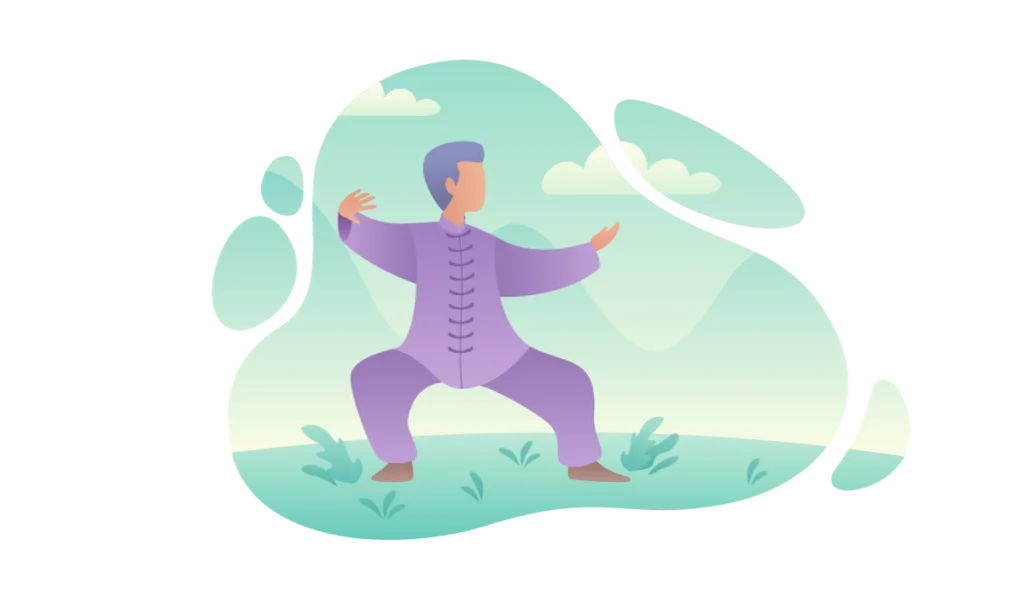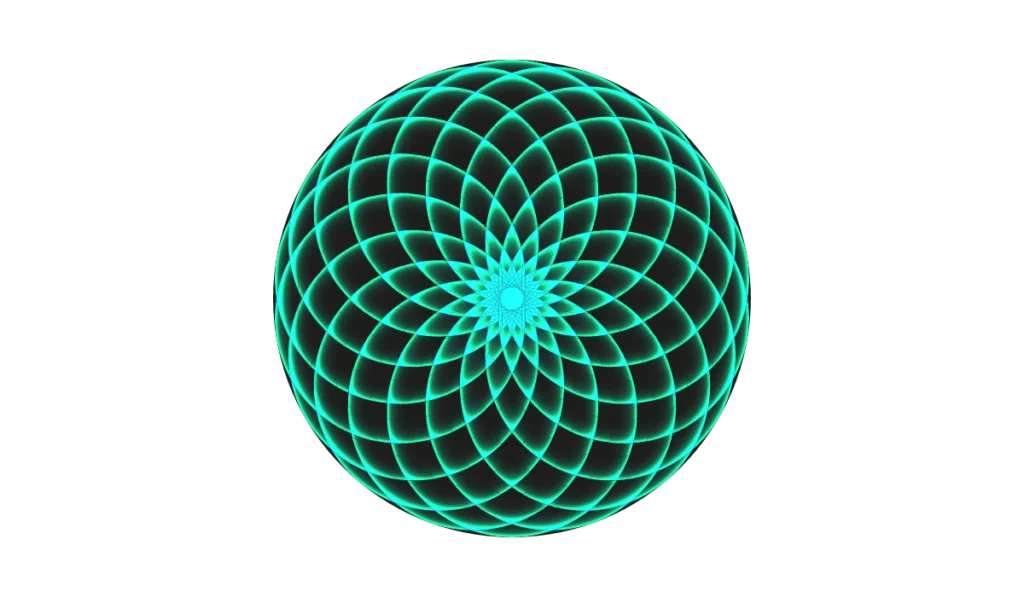Can Qigong Be the Answer to Depression?
Dive into the intricate neuroendocrine systems and discover how Qigong, an ancient Chinese practice, hold potential benefits for depression relief.

Key Points
- Depression's Impact and Pathophysiology: Depression is a globally prevalent mental health disorder. It is related to dysfunction in the brain's limbic system, which links to the hypothalamic–pituitary–adrenal (HPA) axis. Overactivity in this system releases increased amounts of glucocorticoid, potentially contributing to depression.
- HPA Axis and Immune Response: A hyperactive HPA axis and depression are related to immune system abnormalities, with an observed association between pro-inflammatory cytokine alterations and depression. Furthermore, glucocorticoids play a role in regulating inflammatory responses, which can impact depression.
- Current Treatment and Its Limitations: Antidepressants, specifically SSRIs, are the standard treatment for depression. They have anti-inflammatory properties but also come with various side effects.
- Qigong as a Potential Treatment: Qigong, an ancient Chinese healing practice focusing on mindfulness, physical fitness, and the flow of “qi” (life-force energy), is gaining popularity. It has been found to offer a wide range of physical and mental health benefits, with some studies suggesting its efficacy in reducing depressive symptoms similar to SSRIs.
- Unraveling Qigong's Mechanism: Despite emerging evidence supporting qigong's effectiveness against depression, its underlying mechanism remains understudied. Some researchers have begun to explore potential neurobiological and psychological mechanisms, suggesting, for instance, that qigong might modulate stress signals from the limbic system.
In This Article:
Introduction
Role of Qigong on Depression and Its Modern Treatments
Depression is a prevalent and serious mental health disorder, affecting an estimated 350 million people globally.
It is projected to become the second leading cause of overall disease burden by 2030 A Trusted Source World Health Organization.350 Million People Suffer From Depression: WHO. Williamsville (2012) USA.Google Scholar A Trusted Source Mathers CD, Loncar D. Projections of global mortality and burden of disease from 2002 to 2030 (Projections of Global Mortality).PloS Med(2006) 3(11):e442. doi: 10.1371/journal.pmed.0030442 PubMed AbstractCrossRef Full TextGoogle Scholar .
The urgent need for effective treatment has led researchers to explore the pathophysiological changes in patients with depression, particularly focusing on the endocrine and immune systems.

The Link Between Brain Function and Depression
The limbic system, a crucial part of the brain responsible for emotion regulation, plays a vital role in depression.
Dysfunction in the networks linking the limbic system and cortical regions is commonly observed in depressive symptoms A Trusted Source Leuchter AF, Cook IA, Hunter AM, Cai C, Horvath S. Resting-state quantitative electroencephalography reveals increased neurophysiologic connectivity in depression.PloS One(2012) 7(2):e32508. doi: 10.1371/journal.pone.0032508 PubMed AbstractCrossRef Full TextGoogle Scholar .
This system also controls the hypothalamic–pituitary–adrenal (HPA) axis, which, when hyperactive, releases an increased amount of glucocorticoids, a factor contributing to depression A Trusted Source Stahl SM. Placebo-controlled comparison of the selective serotonin reuptake inhibitors citalopram and sertraline.Biol Psychiatry(2000) 48(9):894–901. doi: 10.1016/S0006-3223(00)00957-4PubMed AbstractCrossRef Full TextGoogle Scholar .
Furthermore, impaired glucocorticoid receptors (GRs) in the hippocampus disrupt the negative feedback loop necessary for cortisol regulation, further exacerbating depression A Trusted Source Anacker C, Zunszain PA, Carvalho LA, Pariante CM. The glucocorticoid receptor: pivovwt of depression and of antidepressant treatment?Psychoneuroendocrinology(2011) 36(3):415–25. doi: 10.1016/j.psyneuen.2010.03.007PubMed AbstractCrossRef Full TextGoogle Scholar A Trusted Source Kim Y-K, Na K-S, Myint A-M, Leonard BE. The role of pro-inflammatory cytokines in neuroinflammation, neurogenesis and the neuroendocrine system in major depression.Prog Neuropsychopharmacol Biol Psychiatry(2016) 64:277–84. doi: 10.1016/j.pnpbp.2015.06.008PubMed AbstractCrossRef Full TextGoogle Scholar .
The Immune System's Role in Depression
The relationship between the immune system and depression is a significant area of research, with studies showing an overactivation of the innate immune system and an association between pro-inflammatory cytokines and depression. A Trusted Source Leonard BE. The immune system, depression and the action of antidepressants.Prog Neuropsychopharmacol Biol Psychiatry(2001) 25(4):767–80. doi: 10.1016/S0278-5846(01)00155-5 PubMed AbstractCrossRef Full TextGoogle Scholar A Trusted Source Dowlati Y, Herrmann N, Swardfager W, Liu H, Sham L, Reim EK, et al. A meta-analysis of cytokines in major depression.Biol Psychiatry(2010) 67(5):446–57. doi: 10.1016/j.biopsych.2009.09.033PubMed AbstractCrossRef Full TextGoogle Scholar
These cytokines can induce various neurological changes associated with depression, including decreased neurogenesis and regional brain abnormalities A Trusted Source Zunszain PA, Hepgul N, Pariante CM. Inflammation and depression.Curr Top Behav Neurosci(2013) 14:135–51. doi: 10.1007/7854_2012_211PubMed AbstractCrossRef Full TextGoogle Scholar .
Current Treatments for Depression
The most common treatment for depression is antidepressant medication, specifically serotonin reuptake inhibitors (SSRIs).
SSRIs work by increasing serotonin levels and reducing cortisol secretion, thereby alleviating depressive symptoms A Trusted Source Tsang HWH, Tsang WWN, Jones AYM, Fung KMT, Chan AHL, Chan EP, et al. Psycho-physical and neurophysiological effects of qigong on depressed elders with chronic illness.Aging Ment Health(2013) 17(3):336–48. doi: 10.1080/13607863.2012.732035 PubMed AbstractCrossRef Full TextGoogle Scholar A Trusted Source Henje Blom E, Lekander M, Ingvar M, Åsberg M, Mobarrez F, Serlachius E. Pro-inflammatory cytokines are elevated in adolescent females with emotional disorders not treated with SSRIs.J Affect Disord(2012) 136(3):716–23. doi: 10.1016/j.jad.2011.10.002 PubMed AbstractCrossRef Full TextGoogle Scholar .
However, these medications come with a range of side effects, including headache, sleep disturbances, and alteration of cardiovascular function A Trusted Source Tsang HWH, Fung K. A review on neurobiological and psychological mechanisms underlying the anti-depressive effect of qigong exercise.J Health Psy(2008) 13: (7):857–63.Google Scholar .
Qigong: An Alternative Approach to Treating Depression
Recent studies have been investigating the effects of qigong, an ancient Chinese healing art, on depression.
Qigong incorporates mindfulness-based practices and somatic experiences to improve mental health A Trusted Source Vergeer I, Bennie J, Charity M, Harvey J, Biddle S, Eime R. Participation trends in holistic movement practices: a 10-year comparison of yoga/Pilates and tai chi/qigong use among a national sample of 195,926 Australians.BMC Complementary Altern Med(2017) 17(1):296. doi: 10.1186/s12906-017-1800-6 CrossRef Full TextGoogle Scholar .
Its components include concentration, relaxation, meditation, breathing regulation, and body posture A Trusted Source Tsang HWH, Cheung L, Lak D. Qigong as a psychosocial intervention for depressed elderly with chronic physical illnesses.Int J Ger Psy(2002) 17: (12):1146–54.Google Scholar .
Practiced by approximately 5% of China's population and growing in popularity worldwide, qigong has shown to improve various aspects of physical and mental health, including quality of life, sleep quality, and stress reduction A Trusted Source Zou L, Sasaki JE, Wang H, Xiao Z, Fang Q, Zhang M. A systematic review and meta-analysis of baduanjin qigong for health benefits: randomized controlled trials.Evidence-Based Complementary Altern Med(2017) 2017: 17. doi: 10.1155/2017/4548706 CrossRef Full TextGoogle Scholar A Trusted Source Wang C-W, Chan CHY, Ho RTH, Chan JSM, Ng S-M, Chan CLW. Managing stress and anxiety through qigong exercise in healthy adults: a systematic review and meta-analysis of randomized controlled trials.BMC Complementary Altern Med(2014) 14:8–8. doi: 10.1186/1472-6882-14-8 CrossRef Full TextGoogle Scholar .
Notably, qigong has been found to produce similar effects to SSRIs in reducing depressive symptoms, indicating its potential as an evidence-based adjunct intervention that could reduce the need for medication and its associated side effects A Trusted Source Tsang HWH, Fung K, Chan A, Lee G, Chan F. Effect of a qigong exercise programme on elderly with depression.Int J Ger Psy(2006) 21: (9):890–7. doi: 10.1002/gps.1582 CrossRef Full TextGoogle Scholar .
The Unraveled Mystery of Qigong's Anti-Depressive Effects
Despite the positive findings, the underlying mechanisms of qigong's anti-depressive effects remain unclear.
Some researchers propose that qigong may reduce stressful signals from the limbic system, thus lowering HPA activity, and enhance self-efficacy, a crucial psychological mechanism in regulating depressive symptoms A Trusted Source Tsang HWH, Fung K. A review on neurobiological and psychological mechanisms underlying the anti-depressive effect of qigong exercise.J Health Psy(2008) 13: (7):857–63.Google Scholar .
However, more comprehensive research is needed to fully understand how qigong affects our physical and mental health, as most studies to date have only focused on specific aspects of the mechanism A Trusted Source Lee MS, Kang C-W, Lim H-J, Lee M-S. Effects of Qi-training on anxiety and plasma concentrations of cortisol, ACTH, and aldosterone: a randomized placebo-controlled pilot study.Stress Health: J Int Soc Invest Stress(2004) 20(5):243–8. doi: 10.1002/smi.1023 CrossRef Full TextGoogle Scholar A Trusted Source Li R, Jin L, Hong P, He ZH, Huang CY, Zhao JX, et al. The effect of baduanjin on promoting the physical fitness and health of adults.Evid Based Complement Alternat Med(2014) 2014:784059. doi: 10.1155/2014/784059 PubMed AbstractCrossRef Full TextGoogle Scholar .
Depression is a complex mental health disorder with a multifaceted etiology involving the brain, endocrine, and immune systems.
While SSRIs are the most common treatment, their associated side effects necessitate the exploration of alternative treatments.
Qigong, with its holistic approach to mental health, has emerged as a promising alternative, though further research is required to fully elucidate its anti-depressive mechanisms.
Mechanisms of Qigong on Depression
Decoding the Body: Understanding the Effects of Qigong on Depression
Understanding the human body's response to qigong, a traditional Chinese health practice requires examining various systems within the body.

Let's dive deep and explore the fascinating world of neuroendocrine systems, neurotransmitters, and more.
Neuroendocrine: Hypothalamic-Pituitary-Adrenal (HPA) Axis and Cortisol Levels
Research has shown the potential of qigong to affect cortisol levels, a stress-related hormone, in the body.
Five studies used saliva samples, while one used urine samples for cortisol analysis A Trusted Source Chow YWY, Dorcas A, Siu AMH. The effects of qigong on reducing stress and anxiety and enhancing body–mind well-being.Mindfulness(2012) 3(1):51–9. doi: 10.1007/s12671-011-0080-3 CrossRef Full TextGoogle Scholar A Trusted Source Chan ES, Koh D, Teo YC, Hj Tamin R, Lim A, Fredericks S. Biochemical and psychometric evaluation of Self-Healing Qigong as a stress reduction tool among first year nursing and midwifery students.Complement Ther Clin Pract(2013) 19(4):179–83. doi: 10.1016/j.ctcp.2013.08.001 PubMed AbstractCrossRef Full TextGoogle Scholar .
Findings indicated lower cortisol levels in the qigong group during post-assessment.
Alongside, two studies also recorded a significant reduction in depression symptoms within the qigong group, showcasing the potential benefits of qigong in mental health A Trusted Source Chan ES, Koh D, Teo YC, Hj Tamin R, Lim A, Fredericks S. Biochemical and psychometric evaluation of Self-Healing Qigong as a stress reduction tool among first year nursing and midwifery students.Complement Ther Clin Pract(2013) 19(4):179–83. doi: 10.1016/j.ctcp.2013.08.001 PubMed AbstractCrossRef Full TextGoogle Scholar A Trusted Source Hsieh CJ, Chang C, Tsai G, Wu HF. Empirical study of the influence of a Laughing Qigong Program on long-term care residents.Geriatrics Gerontol Int(2015) 15(2):165–73. doi: 10.1111/ggi.12244 CrossRef Full TextGoogle Scholar .
Neuroendocrine: Renin-Angiotensin System and Its Role
A study by Cheung et al. A Trusted Source Cheung BM, Lo JL, Fong DY, Chan MY, Wong SH, Wong VC, et al. Randomised controlled trial of qigong in the treatment of mild essential hypertension.J Hum Hypertens(2005) 19(9):697–704. doi: 10.1038/sj.jhh.1001884 PubMed AbstractCrossRef Full TextGoogle Scholar focused on aldosterone and renin, two other significant neuroendocrine players.
The results showed no significant difference in aldosterone levels between the groups, but a notable decrease in renin levels was observed.
Yet, depression symptoms remained consistent across both groups.
The Serotonin Connection
When it comes to serotonin, a neurotransmitter often associated with feelings of happiness, a study by Tsang et al. A Trusted Source Tsang HWH, Tsang WWN, Jones AYM, Fung KMT, Chan AHL, Chan EP, et al. Psycho-physical and neurophysiological effects of qigong on depressed elders with chronic illness.Aging Ment Health(2013) 17(3):336–48. doi: 10.1080/13607863.2012.732035 PubMed AbstractCrossRef Full TextGoogle Scholar showed no significant changes post-qigong intervention.
However, a noteworthy decrease in depression symptoms was reported, once again reinforcing the potential mental health benefits of qigong.
Autonomic Nervous System and Heart Health
Various studies explored the effects of qigong on blood pressure and heart rate.
The results varied, with some studies recording lower systolic and diastolic blood pressure post-intervention A Trusted Source Chow YWY, Dorcas A, Siu AMH. The effects of qigong on reducing stress and anxiety and enhancing body–mind well-being.Mindfulness(2012) 3(1):51–9. doi: 10.1007/s12671-011-0080-3 CrossRef Full TextGoogle Scholar
and others finding no significant changes A Trusted Source Li R, Jin L, Hong P, He ZH, Huang CY, Zhao JX, et al. The effect of baduanjin on promoting the physical fitness and health of adults.Evid Based Complement Alternat Med(2014) 2014:784059. doi: 10.1155/2014/784059 PubMed AbstractCrossRef Full TextGoogle Scholar A Trusted Source Tsang HWH, Lee JL, Au DW, Wong KK, Lai KW. Developing and testing the effectiveness of a novel health qigong for frail elders in Hong Kong: a preliminary study.Evid Based Complement Alternat Med(2013) 2013:827392. doi: 10.1155/2013/827392 PubMed AbstractCrossRef Full TextGoogle Scholar .
Meta-analysis highlighted a significant effect of qigong in reducing diastolic blood pressure.
Similarly, for heart rate, results were mixed, with some studies recording a lower rate post-qigong and others finding no significant changes A Trusted Source Payne P, Fiering S, Leiter JC, Zava DT, Crane-Godreau MA. Effectiveness of a novel qigong meditative movement practice for impaired health in flight attendants exposed to second-hand cigarette smoke.Front Hum Neurosci(2017) 11:67. doi: 10.3389/fnhum.2017.00067 PubMed AbstractCrossRef Full TextGoogle Scholar A Trusted Source Chow YWY, Dorcas A, Siu AMH. The effects of qigong on reducing stress and anxiety and enhancing body–mind well-being.Mindfulness(2012) 3(1):51–9. doi: 10.1007/s12671-011-0080-3 CrossRef Full TextGoogle Scholar.
Immune System Boost: Unpacking the Power of Qigong
The immune system was another focal point, with studies exploring the effects of qigong on C-reactive protein (CRP) and immunoglobulin A (IgA) levels.
Results showed a significant difference in CRP levels, affirming the potential of qigong in boosting immune response A Trusted Source Lavretsky H, Alstein LL, Olmstead RE, Ercoli LM, Riparetti-Brown M, Cyr N, et al. Complementary use of Tai Chi Chih augments escitalopram treatment of geriatric depression: a randomized controlled trial.Am J Geriatric Psychiatry(2011) 19(10):839–50. doi: 10.1097/JGP.0b013e31820ee9ef CrossRef Full TextGoogle Scholar A Trusted Source Payne P, Fiering S, Leiter JC, Zava DT, Crane-Godreau MA. Effectiveness of a novel qigong meditative movement practice for impaired health in flight attendants exposed to second-hand cigarette smoke.Front Hum Neurosci(2017) 11:67. doi: 10.3389/fnhum.2017.00067 PubMed AbstractCrossRef Full TextGoogle Scholar .

Additionally, a significant increase in IgA levels was recorded in the qigong group, demonstrating the potential of qigong in enhancing mucosal immunity A Trusted Source Chan ES, Koh D, Teo YC, Hj Tamin R, Lim A, Fredericks S. Biochemical and psychometric evaluation of Self-Healing Qigong as a stress reduction tool among first year nursing and midwifery students.Complement Ther Clin Pract(2013) 19(4):179–83. doi: 10.1016/j.ctcp.2013.08.001 PubMed AbstractCrossRef Full TextGoogle Scholar .
Understanding Metabolism's Response to Qigong
The metabolic system was also put under the lens, with studies analyzing the effects of qigong on cholesterol, triglycerides, and blood lipids.
One study recorded a significant decrease in cholesterol post-qigong, yet other studies found no significant changes in cholesterol, triglycerides, or blood lipids post-intervention A Trusted Source Cheung BM, Lo JL, Fong DY, Chan MY, Wong SH, Wong VC, et al. Randomised controlled trial of qigong in the treatment of mild essential hypertension.J Hum Hypertens(2005) 19(9):697–704. doi: 10.1038/sj.jhh.1001884 PubMed AbstractCrossRef Full TextGoogle Scholar A Trusted Source Li R, Jin L, Hong P, He ZH, Huang CY, Zhao JX, et al. The effect of baduanjin on promoting the physical fitness and health of adults.Evid Based Complement Alternat Med(2014) 2014:784059. doi: 10.1155/2014/784059 PubMed AbstractCrossRef Full TextGoogle Scholar .
The Psychological Benefits of Qigong
Lastly, the psychological impact of qigong was analyzed through self-concept, self-efficacy, and their correlation with depression.
A study by Tsang et al. A Trusted Source Tsang HWH, Tsang WWN, Jones AYM, Fung KMT, Chan AHL, Chan EP, et al. Psycho-physical and neurophysiological effects of qigong on depressed elders with chronic illness.Aging Ment Health(2013) 17(3):336–48. doi: 10.1080/13607863.2012.732035 PubMed AbstractCrossRef Full TextGoogle Scholar showed a significant increase in self-efficacy and enhancement of self-concept in the qigong group.
Moreover, a positive correlation was found between changes in self-efficacy and reported symptoms of depression, showcasing the profound psychological benefits that qigong can offer.
While results across various systems in the body vary, the potential benefits of qigong in improving mental health, reducing stress, and boosting immune response are evident.
These findings highlight the need for further research to fully understand the impact of qigong on human health, offering promising prospects for those seeking alternative methods to improve their well-being.
Discussion
The article brings to light the global impact of depression and the necessity for effective treatments.
The complexity of depression, as outlined by the interactions between the endocrine and immune systems, emphasizes the need for a holistic treatment approach.
Qigong appears to be a potential candidate for this, given its mind-body holistic healing approach, which aligns well with the interconnected nature of depression's pathophysiology.
Furthermore, the positive initial findings regarding qigong's effects on depression are noteworthy.
However, a comprehensive understanding of qigong’s mechanisms requires a multifaceted research approach, including biochemical, psychological, and physiological studies.
Conclusion
With the increasing prevalence of depression and its substantial impact on global health, it is crucial to explore various treatment modalities.
Qigong, rooted in traditional Chinese medicine, presents a holistic approach to addressing the complex nature of depression.
Preliminary findings suggest that qigong may modulate factors associated with depression, such as the HPA axis, immune system, and psychological well-being.
However, the intricacies of qigong's mechanisms are yet to be fully unraveled.
Future research, incorporating diverse methodologies, will be pivotal in comprehensively understanding how qigong can be integrated into mainstream depression treatment protocols, potentially mitigating the adverse effects associated with current antidepressant medications.
Review date not set.
How we reviewed this article:
Latest on:





